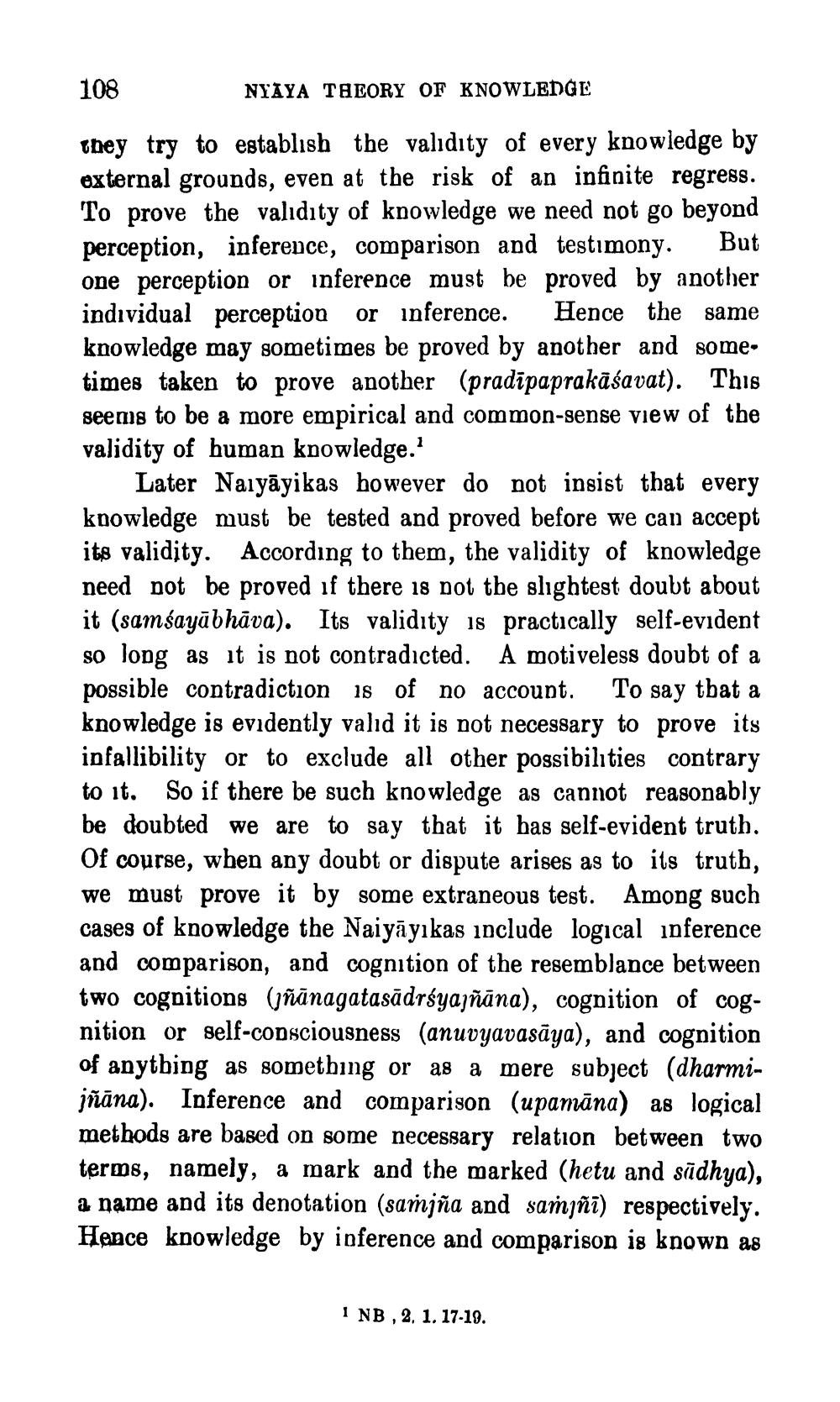________________
108
NYAYA TAEORY OF KNOWLEDGE
they try to establish the validity of every knowledge by external grounds, even at the risk of an infinite regress. To prove the validity of knowledge we need not go beyond perception, inference, comparison and testimony. But one perception or inference must be proved by another individual perception or inference. Hence the same knowledge may sometimes be proved by another and some. times taken to prove another (pradīpaprakāśavat). This seems to be a more empirical and common-sense view of the validity of human knowledge.
Later Naiyāyikas however do not insist that every knowledge must be tested and proved before we can accept its validity. According to them, the validity of knowledge need not be proved if there is not the slightest doubt about it (samśayābhāva). Its validity is practically self-evident so long as it is not contradicted. A motiveless doubt of a possible contradiction is of no account. To say that a knowledge is evidently valid it is not necessary to prove its infallibility or to exclude all other possibilities contrary to it. So if there be such knowledge as cannot reasonably be doubted we are to say that it has self-evident truth. Of course, when any doubt or dispute arises as to its truth, we must prove it by some extraneous test. Among such cases of knowledge the Naiyāyikas include logical inference and comparison, and cognition of the resemblance between two cognitions (jñānagatasādrśyajñāna), cognition of cognition or self-consciousness (anuvyavasāya), and cognition of anything as something or as a mere subject (dharmijñāna). Inference and comparison (upamāna) as logical methods are based on some necessary relation between two terms, namely, a mark and the marked (hetu and sūdhya), a name and its denotation (samjña and samiñī) respectively. Hence knowledge by inference and comparison is known as
INB, 2. 1. 17-19.




